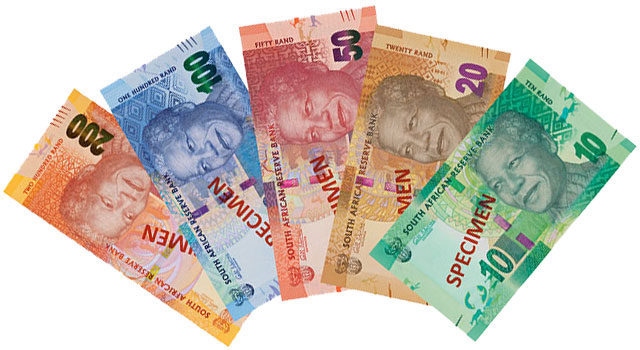
Traders are adding to bets on the first South African rate cut in more than four years after data showed the current-account deficit, a key risk for the rand, narrowed and consumer inflation slowed for a second month.
Forward-rate agreements starting in December fell seven basis points to 7,03% on Wednesday, 30 basis points lower than the benchmark three-month Johannesburg Interbank Agreed Rate, suggesting traders see the central bank’s policy rate falling this year.
The rand and government bonds gained, while stocks fell after the S&P 500 Index tumbled the most since Donald Trump’s election on Tuesday.
South Africa relies on foreign investment in stocks and bonds to help fund the current-account gap, which swelled to 6,9% of GDP in 2013. A smaller shortfall relieves pressure on the rand, which may extend gains after reaching a 19-month high against the dollar on Tuesday, according to Treasuryone. That may cap the cost of imports, further slowing inflation and enabling the central bank to ease policy for the first time since August 2012.
“The batch of South African data published today will have provided welcome relief for the central bank,” William Jackson, a senior emerging markets economist at Capital Economics in London, said in a note. “The narrowing of the current account deficit and fall in core inflation reinforce our view that the Reserve Bank will loosen monetary policy this year in order to support the weak economy.”
The current-account shortfall narrowed to 1,7% of GDP in the fourth quarter, less than the median forecast of 3,2%, according to estimates compiled by Bloomberg. Consumer inflation slowed to 6,3% in February from a year ago, in line with expectations.
The rand gained as much as 0,5% against the dollar before paring the advance to trade 0,2% stronger at R12,66 by 11.40am in Johannesburg, the only emerging market currency to strengthen on Wednesday. Yields on government rand bonds due in December 2026 fell five basis points to 8,4%, the lowest since November 2015, while the benchmark FTSE JSE Johannesburg All Share Index dropped 1,5%.
“The rand takes its cue from the international front, but the current-account data has helped today,” Wichard Cilliers, a trader at Treasuryone, said by phone from Pretoria. The currency may breach R12,50/$ in coming months for the first time since August 2015, he said. — (c) 2017 Bloomberg LP




